| Wicking Dementia Centre: December 2020 Newsletter |
View in browser | Print |
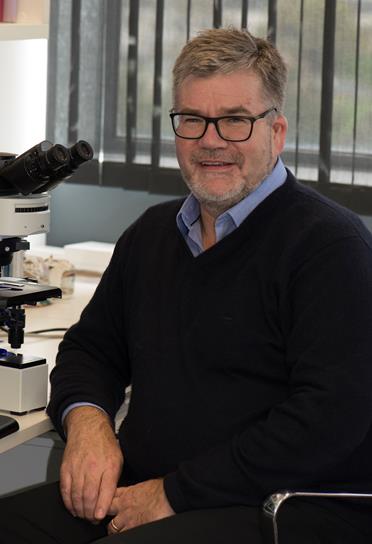
End of year greetings
Welcome to the December and final issue of the Wicking Dementia Centre newsletter for 2020. 2020 has been an extraordinary year with the pandemic affecting us all in many ways. We hope that you have not been too adversely impacted and that conditions may be improving with the reduced incidence of COVID-19 infection. Most areas of activity within the Wicking Dementia Centre have returned to usual business, but we did have some interruptions to our cohort and clinical research studies. Our usual graduation events have also been affected to a degree, and we understand that not as many graduands have been able to travel to Hobart for ceremonies. The New Year will bring the final report of the Royal Commission into Aged Care Quality and Safety, and it is hoped that, after many other reports and inquiries, that this will be the catalyst for positive change and support of aged care, particularly for those impacted by dementia. We also hope that the Federal Government, and other related organisations, respond rapidly to the Commissioner’s recommendations for improvement. On a positive note for a brighter 2021, thank you for your continued support and I would like to wish you the best for Christmas and other seasonal festivities, and that the new year is a happy and more settled experience! 
|  | | OUR RESEARCH |
 | 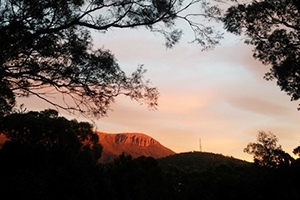 |
Allied health professionals’ dementia knowledge | Tailored education to improve bushfire-related health outcomes for older Tasmanians |
Allied health professionals include dietitians, occupational therapists, physiotherapists, social workers, speech pathologists and more. Recently a team led by physiotherapist Dr Kate Lawler from the Wicking Dementia Centre conducted an evaluation of the knowledge of allied health professionals who enrolled in our Understanding Dementia MOOC in 2018, to help guide future education planning. Read more | Spectacular bushland is never far from our doorsteps in Tasmania, but as a result, we are threatened with bushfires every summer. This can be acutely stressful and may increase dementia risk by disrupting our physical and mental health. A successful grant application through the Natural Disaster Risk Reduction Grants Program has enabled the development of a short course to build knowledge about bushfire risks with a focus on using this knowledge to increase bushfire preparedness. Read more |
|
| OUR EDUCATION |
 |  |
Gain the knowledge to support our ageing population | Postgraduate study in dementia |
The Wicking Dementia Centre has developed a new Diploma to bring together the social and health-based perspectives of ageing. With the challenges of an ageing population, the Diploma of Ageing Studies and Services will cover contemporary issues relating to care and services for older people. It is relevant to those working with older adults, allowing you to develop your role and increase your capacity to assist across the complex health and social systems associated with ageing. APPLY TODAY | For those graduates and professionals currently working within, or building their expertise in, a field related to dementia, our postgraduate program gives you the opportunity to enhance your skills and equip yourself with the expertise to lead transformation, based on the latest evidence. This program will enable you to provide best-practice care, advice and strategies to drive change in meeting and anticipating the needs of people living with dementia in your particular context. APPLY TODAY |
|
| | 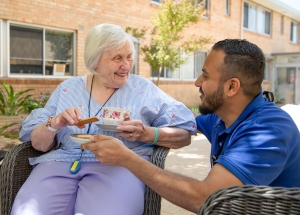
Understanding Dementia MOOC
Our latest Understanding Dementia MOOC (Massive Open Online Course) is open for enrolments with the course starting on 16 February 2021. Understanding Dementia is designed to be accessible and appealing to people from diverse backgrounds, including health professionals, community and residential support workers and people in the early stages of the disease and their families and carers. Understanding Dementia addresses the foremost issues surrounding dementia, providing avenues for discussion as well as rich global networking opportunities to engage with this major international health Issue. As ‘word-of-mouth’ has been a major factor in expanding the reach of our MOOCs, we would ask you to let your friends and family know the importance of dementia education and with your help we will continue to expand the reach of our MOOCs to improve dementia literacy, knowledge and understanding. ENROL TODAY
| |
Learn more about courses at the Wicking Dementia Centre
| | NEWS FROM THE COMMUNITY |
The Village
Korongee, a brand new dementia care facility in a working-class northern suburb of Hobart, combines the best dementia care practices from around the planet with some new and revolutionary ideas. Like focussing on the individual and their life experiences as the basis for their future care. Roar Film are working with Screen Australia and HESTA to produce an observational documentary utilising animation and re-creations to depict people’s life experiences. The Village film will follow residents, their family, carers, staff and management for six months to see if the Korongee Village model does in fact offer a better and more compassionate model for dementia care. To see the trailer and contribute to the realisation of this important film please go to: https://documentaryaustralia.com.au/project/the-village/
|
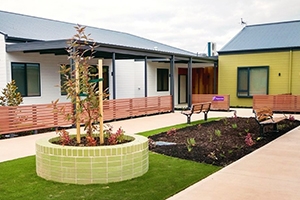 | 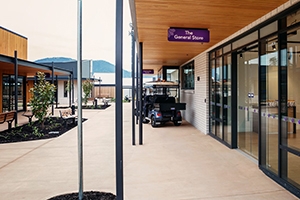 |
Research into community expectations of Korongee | Korongee Village |
A team of researchers at the Wicking Dementia Research and Education Centre have been working closely with local community members, Korongee staff, people living with dementia and their family members, to find out about expectations of the village model. Earlier this year, while the village was still being built, we talked with 12 people living and working in the local community to explore what people have heard about Korongee and what expectations they have for the village.
They hope the village will be a vibrant, enjoyable and safe place to be where residents are supported to live a ‘normal’ life. Participants shared many ideas about how we can build connections between the village and the surrounding community. They also see a need for more dementia education in the community so that people feel more confident interacting with people living with dementia in the village. Read more | Korongee Village, which opened in Hobart, Tasmania this year, is based on a small house model design and consists of four cul-de-sacs plus a village centre where residents can access a café, wellness centre, general store and a community centre. The village’s model of care aims to provide personalised care that is attentive to individuals living with dementia. This includes supporting residents to feel a sense of freedom and space, as well as adopting resident-directed activities. The facility utilises a tailored matching process for house selection of new residents. This tailoring, which has been developed in conjunction with the University of Tasmania, involves an interview process with the residents and loved ones to determine which of the identified typologies represents the person’s way of life before they came to residential care. They are then placed in a house with people who share the same values.
Read more |
|
|
Stay connected:
|




|
utas.edu.au/wicking
|
| |
|
|